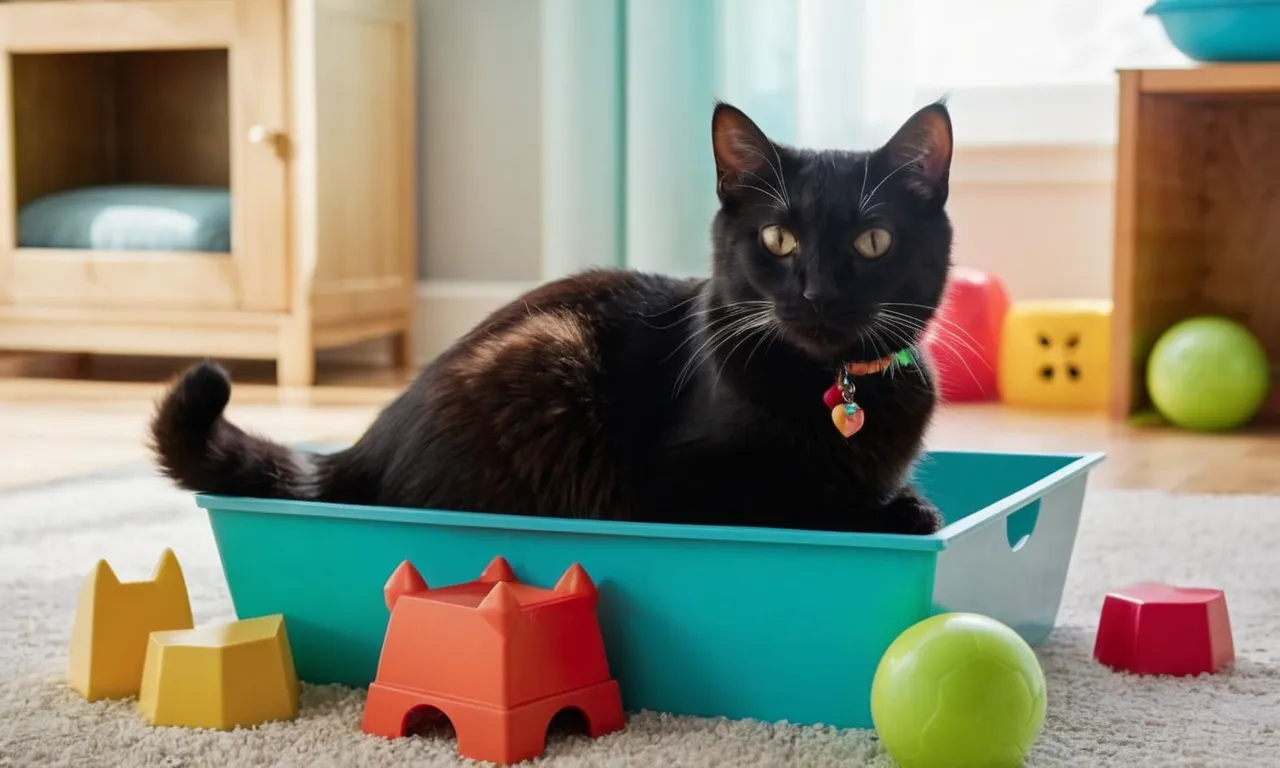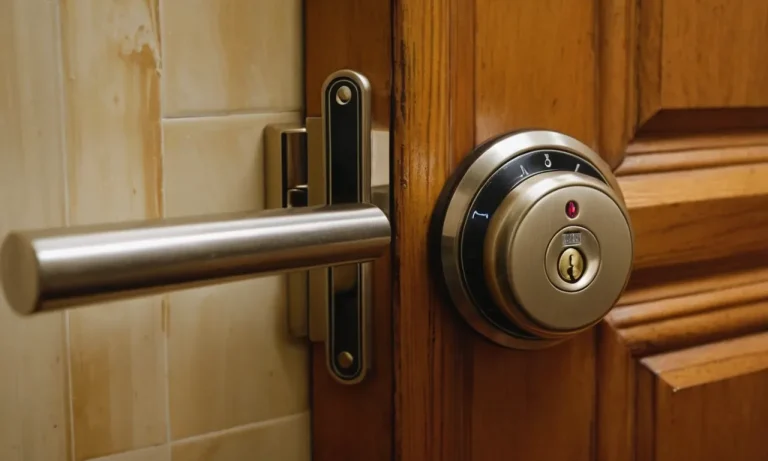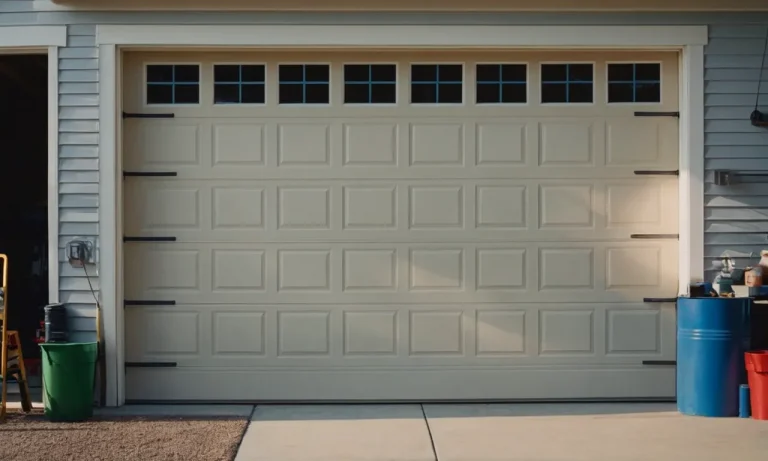How To Stop Your Cat From Pooping On The Floor
Cats pooping outside their litter box can be extremely frustrating for pet parents. If your furry friend has decided that your floor makes a good alternative toilet, you’re probably desperate to get the behavior under control.
The good news is that with some patience and consistency, you can teach your cat to keep using the litter box. In this comprehensive guide, we’ll walk through all the common reasons for floor pooping and provide actionable tips to solve the problem once and for all.
By the end, you’ll have a detailed plan to stop your cat from pooping on the floor and keep your home clean and odor-free.
Why Cats Poop Outside the Litter Box
It can be frustrating and puzzling when your cat starts pooping outside the litter box. Understanding the reasons behind this behavior can help you address the issue and find a solution that works for both you and your furry friend.
Medical Issues
In some cases, cats may poop outside the litter box due to underlying medical issues. It’s important to rule out any health problems that could be causing discomfort or pain during elimination. Conditions such as urinary tract infections, gastrointestinal issues, or constipation can lead to litter box aversion.
If your cat’s litter box habits suddenly change, it’s a good idea to consult with your veterinarian to rule out any medical issues.
Preference for a Different Litter Type
Cats can be picky when it comes to their litter preferences. Some cats may have a strong preference for a specific type of litter, whether it’s clumping, non-clumping, scented, or unscented. If you recently switched to a new litter and noticed your cat’s litter box behavior changed, it could be that they do not like the new litter.
Experimenting with different litter types and textures may help you identify the one that your cat prefers.
Stress and Anxiety
Cats are sensitive creatures, and stress and anxiety can affect their litter box habits. Changes in the environment, such as moving to a new house, the addition of a new pet, or changes in daily routines, can trigger stress in cats. This, in turn, may cause them to avoid the litter box.
Creating a calm and secure environment for your cat, providing them with hiding spots, and offering interactive toys can help reduce stress levels and encourage proper litter box usage.
Dirty Litter Box
Cats are naturally clean animals and may refuse to use a litter box that is dirty or has a strong odor. Scooping the litter box daily and completely changing the litter on a regular basis can help maintain cleanliness and prevent your cat from seeking alternative elimination spots.
It’s also important to note that some cats prefer a larger litter box, so providing a spacious and clean litter box may encourage proper litter box usage.
Dislike of Litter Box Location
The location of the litter box can also play a role in your cat’s bathroom habits. Cats prefer privacy when using the litter box, so placing it in a quiet and secluded area can help. Avoid placing the litter box near loud appliances, high-traffic areas, or areas that may startle your cat.
Additionally, some cats may prefer multiple litter box locations in different parts of the house. Experimenting with different locations may help you find the one that your cat feels most comfortable using.
Cleaning Up Poop from the Floor
Dealing with a cat that consistently poops on the floor can be frustrating and unpleasant. However, it’s important to handle the situation calmly and effectively. One of the first steps in addressing this issue is to clean up the mess properly.
Here are some tips for cleaning up cat poop from the floor:
- Act promptly: It’s important to clean up the poop as soon as possible to prevent any further mess or odor. Cats have a strong sense of smell and may be attracted to the scent of their own waste, which can lead to repeated incidents.
- Gather necessary supplies: Before you begin cleaning, make sure you have the right supplies on hand. This may include disposable gloves, paper towels or old cloth towels, a plastic bag for disposal, and an enzymatic cleaner specifically designed for pet stains and odors.
- Remove solid waste: If the poop is still intact, use a paper towel or gloved hand to carefully pick it up and place it in a plastic bag. Be sure to seal the bag tightly to prevent any odor from escaping.
- Clean the area: Once the solid waste is removed, use a damp cloth or paper towel to gently clean the affected area. Avoid using strong chemicals or bleach, as these can be harmful to cats. Instead, opt for an enzymatic cleaner that will break down any remaining organic matter and eliminate odors.
- Thoroughly dry the area: After cleaning, make sure to thoroughly dry the area to prevent any lingering moisture that could attract your cat back to the same spot. You can use a clean towel or allow the area to air dry naturally.
- Discourage repeat incidents: To prevent your cat from pooping on the floor again, it’s important to address the underlying cause of their behavior. This may involve consulting with a veterinarian to rule out any medical issues, providing a clean and accessible litter box, and ensuring your cat feels safe and secure in their environment.
Remember, cleaning up after your cat is an important part of being a responsible pet owner. By following these tips and addressing any underlying issues, you can help prevent future incidents and create a clean and healthy environment for both you and your feline friend.
Training Your Cat to Use the Litter Box
Having a cat that consistently poops on the floor can be frustrating and unpleasant. However, with some patience and the right approach, you can train your cat to use the litter box consistently. Here are some tips to help you get started:
Rule Out Medical Problems
Before assuming that your cat is misbehaving, it’s important to rule out any underlying medical conditions that may be causing the inappropriate elimination. Take your cat to the vet for a check-up to ensure there are no health issues contributing to the problem.
It’s always better to be safe than sorry!
Try a New Litter Type
Cats can be quite picky when it comes to their litter preferences. If your cat is consistently pooping on the floor, try experimenting with different types of litter to see if they have a preference. Some cats prefer clumping litter, while others may prefer a non-clumping variety.
Additionally, some cats may prefer unscented litter over scented ones. Observe your cat’s behavior and make adjustments accordingly.
Add More Litter Boxes
One common reason why cats avoid using the litter box is because there aren’t enough of them available. As a general rule, you should have one litter box per cat, plus an extra one. This ensures that your cat always has access to a clean and accessible litter box.
Place the litter boxes in different areas of your home to give your cat options and make it easier for them to find a litter box when they need it.
Keep the Litter Box Ultra Clean
Cats are naturally clean animals and may avoid using a dirty litter box. Make sure to scoop the litter box daily and completely change the litter at least once a week. Cats have a heightened sense of smell, so using a litter that controls odor can also help encourage your cat to use the litter box.
Try Litter Box Attractants
In some cases, using litter box attractants can be helpful in encouraging your cat to use the litter box. These attractants are usually made from natural herbs or pheromones that simulate the scent of a familiar territory for your cat.
You can sprinkle these attractants in the litter box to make it more appealing and enticing for your cat to use.
Use Deterrents
If your cat continues to poop on the floor despite your best efforts, you can use deterrents to discourage this behavior. For example, you can place double-sided tape or aluminum foil on the areas where your cat tends to eliminate. Cats dislike the texture and will avoid those areas.
You can also try using a pet-safe deterrent spray on the floor to discourage your cat from going there.
Reward Litter Box Use
Positive reinforcement is key when training your cat to use the litter box. Whenever your cat uses the litter box, praise them and offer a small treat or a pat on the head. This helps create a positive association between using the litter box and receiving rewards.
Consistency and patience are important, but with time and positive reinforcement, your cat will be more likely to use the litter box consistently.
Remember, every cat is unique, and it may take some trial and error to find the right solution for your feline friend. Be patient and persistent, and soon enough, you’ll have a cat that consistently uses the litter box!
Preventing Future Pooping Incidents
Dealing with a cat that poops on the floor can be frustrating, but there are steps you can take to prevent future incidents. By addressing the underlying causes and creating a conducive environment for your cat, you can encourage proper litter box usage.
Here are some tips to help you prevent your cat from pooping on the floor:
Add or Move Litter Boxes
One of the most common reasons why cats poop on the floor is because the litter box is not easily accessible or not to their liking. Ensure that you have enough litter boxes in your home, especially if you have multiple cats. Experts recommend having one litter box per cat, plus an extra one.
Place the litter boxes in quiet, low-traffic areas where your cat feels safe and comfortable. Experiment with different types of litter to find the one your cat prefers. Some cats may have a preference for covered litter boxes, while others may prefer open ones.
Maintain a Stress-Free Environment
Cats are sensitive creatures, and stress can often lead to litter box problems. Identify any potential stressors in your cat’s environment and address them accordingly. Common stressors include changes in routine, new pets or family members, loud noises, or even a dirty litter box.
Ensure that your cat has a quiet, safe space where they can retreat to when they need to relax. Providing environmental enrichment, such as toys and scratching posts, can also help alleviate stress and redirect your cat’s behavior.
Continue Reinforcing Good Litter Box Habits
Consistency is key when it comes to litter box training. Continue to reinforce good litter box habits by regularly scooping the litter box, providing clean litter, and ensuring that the litter box is large enough for your cat to comfortably move around in.
If your cat has had previous accidents, clean the affected area thoroughly to remove any lingering scent that might attract them back. Consider using an enzymatic cleaner specifically formulated to eliminate pet odors.
Additionally, praise and reward your cat when they use the litter box correctly to positively reinforce their behavior.
Remember, patience is essential when trying to prevent your cat from pooping on the floor. It may take time for your cat to adjust to the changes you make and develop new habits. If the problem persists or worsens, it’s always a good idea to consult with your veterinarian to rule out any underlying medical issues that may be contributing to the behavior.
Conclusion
While curbing inappropriate elimination takes time and effort, it’s very possible to get your cat back to regularly using the litter box with the right techniques.
Stay patient, stick to a routine, and constantly reinforce good litter box habits through rewards. With a multi-pronged approach focused on meeting your cat’s needs, you can win the war on cat poop on the floor.







